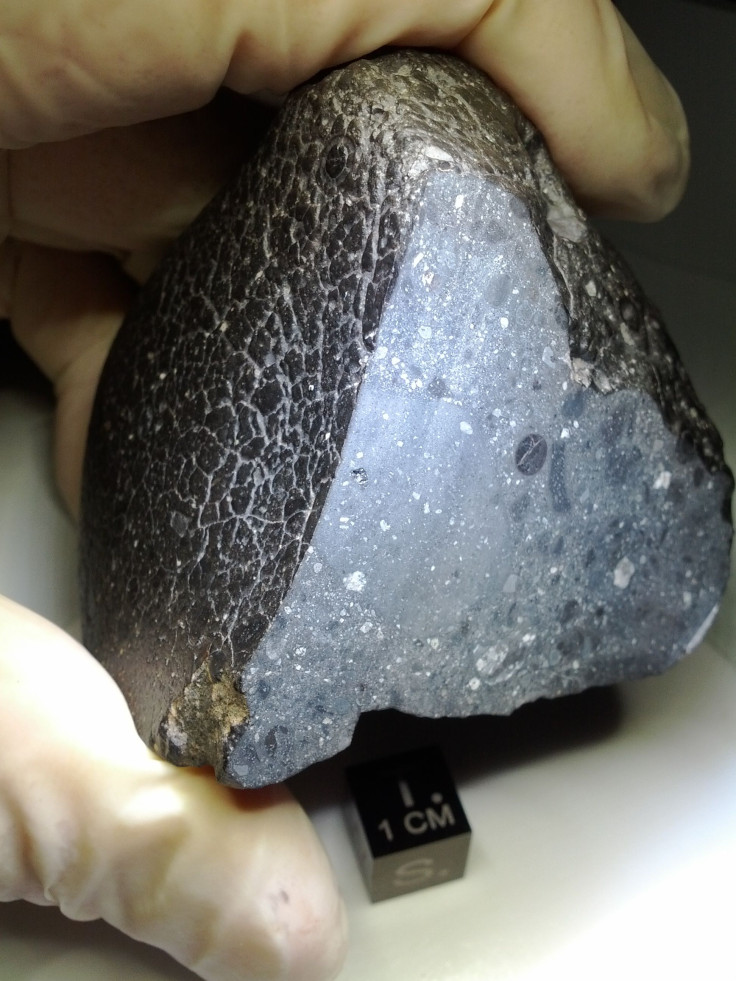Ancient Meteorites Show Water On Earth Early In Solar System’s Life

The space rocks that delivered Earth’s water may have visited even before the solar system was 2 million years old — a super young age on the astronomical scale.
Scientists have long suggested that rocks like asteroids that crashed into our planet brought with them crucial elements our world uses to sustain life, but when this occurred has been a lingering question. A new study in the journal Geochimica et Cosmochimica Acta points to that happening shortly after the solar system was born 4.6 billion years ago.
Researchers analyzed some of a rare type of meteorite called angrites, measuring the volume of volatile elements like hydrogen and carbon.
The meteorites all came from one parent asteroid roughly the size of Vesta, the largest rock in the asteroid belt after the dwarf planet Ceres. Because the angrite rock formed close to the beginning of the solar system, their content speaks to what that young system was like. Earth was smaller back then, and hotter.
“We’re looking at as many meteorite parent bodies as possible right now to figure out where they were in the early solar system and how much water they had,” researcher Adam Sarafian said, according to NASA’s Astrobiology Magazine. “We’re trying to build a map of the very early inner solar system. Where was the water, where was it going and where did it come from?”
The magazine says the angrites’ composition suggests “water was fairly abundant” in the early solar system.
This research adds to a previous study, which Sarafian also worked on, that found the water on these meteorites came from the same source as Earth’s water, based on the two water supplies having the same makeup.
“It’s a fairly simple assumption to say that Earth’s water at least started accreting to Earth extremely early, before the planet was even fully formed,” Sarafian said. “This means that when the planet cooled enough so that liquid water could be stable at the surface, there was already water here.”
© Copyright IBTimes 2024. All rights reserved.





















